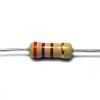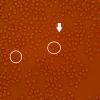In yeast. While the usual experimental progression (yeast, roundworm, fly, rodent, monkey) makes sense for cost reasons, so many promising compounds that extend yeast, roundworm, or fly longevity have no effect in mammals that I wouldn't get excited (yet)
The promising extracts:
Black cohosh root: Native American medicinal with serotonin & GABAA receptor agonist activity & phytosterols
Valerian root: GABAA receptor agonist and adenosine A1 receptor antagonist/inverse agonist
Purple passionflower plant: GABAA receptor agonist and high flavonoid & alkaloid content
Gingko biloba leaf: possibly helpful in dementia. Wiki not helpful with active compounds, and tonight I'm lazy.
Celery seed: high in apigenin and luteolin, effective hormetics
Willow bark: salicylates are known AMPK inducers.
For the most part, we're looking at common polyphenol effects. The GABAA receptor agonist activity of three of these extracts is intriguing. They didn't test lavender (whose aromatic compound linalool is one of the best known GABAA receptor agonists). Do yeast even have GABA receptors? It's not clear, but they certainly have analogs to GABA receptor associated protein that are important in autophagy, and many longevity interventions are dependent on autophagy upregulation. Might be worth looking into.
![]()




























































